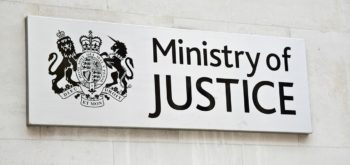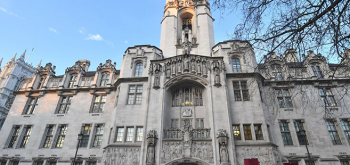And so to Parliament again to hear about the impact of legal aid cuts on victims of domestic violence in a report by that very British group, the Women’s Institute. The Coalition government is proposing to remove legal aid from family law advice except where there is domestic violence; however the report by the National Federation of Women’s Institutes, entitled Legal Aid is a Lifeline, claims that too narrow a definition of domestic violence will deprive many vulnerable women of the protection they need – read more here.
Jean suffered domestic violence 40 years ago. Her husband and assailant was a wealthy man. He held her under his sway. He put her in the hospital, and were it not for legal aid she would not have obtained her divorce or custody of the children. Her husband was convicted of causing GBH. She tells us that without legal aid, she would have gone home to the man who put her in intensive care.
Sam learnt that her partner had been convicted of tying up and raping a child. When she asked him to go he refused to do so. Eventually he went to prison for what she saw as an attempt to kill her by stabbing or breaking of the neck after she’d put the kids to bed. He went to prison, but for years after he stalked her, even in court. She says that without a doubt she would now be dead if she had not been able to get help from the courts.
Claudia managed to escape, but has to tolerate her daughter asking why her dad, who has contact with their daughter regularly, tells her that Claudia’s not her mum. ‘You’re white and she’s black,’ he says. A wise child knows her own father I think, but most know their mother.
The proposed legal aid cuts are catastrophic.
If, in the last 12 months you have managed to get the man who used to hit you into prison or get him on trial, if you have managed to get any judge anywhere to state on the record that your allegations of domestic violence are proven, then you will get a service. If it happened more than a year later you won’t get any help if psycho husband turns up.
If you manage to get a social worker concerned about the impact of the domestic violence that’s good. If the police and the social workers have a meeting and declare that you are likely to suffer GBH or something worse that will help to get you a service.
Good luck with that then.
To get legal aid for domestic violence it is not sufficient to walk into a police station with a black eye. Convictions for rapists and assailants are very low. But if you have managed to achieve a conviction against your assailant in the last 12 months (no longer) you could get legal aid.
The government line is that objective evidence must be obtained that the woman is at a high risk of violence. The matter is being debated as we speak. But as anyone who knows anything about domestic violence will tell you, often the only witnesses to violent events are the witnesses and the perpetrator. Victims feel undermined and isolated, hiding their bruises, failing to report their rapes. They are cowed, they blame themselves.
One survey found that 70% of women in refuges failed to report their abuse to the police. With pitiful conviction rates for offences like rape, you can see their point.
The government’s adoption of a new definition of domestic violence for which funding will be available will prevent many domestic violence victims, as recognised by by the Association of Chief Police Offices, from getting legal aid and will they will have to represent themselves. They will have to be subjected to cross-examination by their assailants, something which in criminal rape trials is becoming a thing of the past.
Baroness Scotland, the Shadow Attorney General, tells us that in the last government domestic violence was reduced by 65%, constituting a saving of £7.5 billion pounds in social costs. It seems that this trend will now go into reverse.
In the debates the Legal Aid Minister Jonathan Djanogly states: ‘I am not questioning the integrity of genuine victims. However, many people during the legal aid consultation were concerned about providing an incentive for unfounded allegations and the government shares this concern.’
What really? The 5,000 responses to the consultation included a significant response from rational people who felt it was too easy for battered women to get legal aid. I rather doubt that.
My brain fries at a certain point. I don’t do family law, I just smell something that’s not right. Justice doesn’t smell like this. Not right, not fair.
Write to your MP. It takes 30 seconds on Justice for All’s website.
This first appeared at http://frontlinehackney.blogspot.com/





